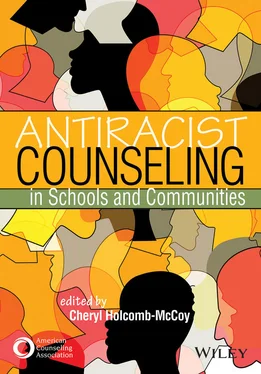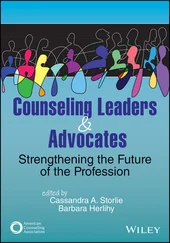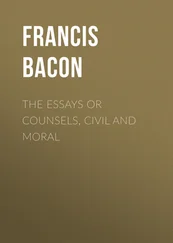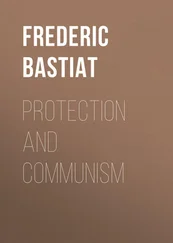ASCA (2020), similarly, issued a statement:
The American School Counselor Association condemns violence and the systemic and institutional racism that marginalizes African Americans. ASCA calls on all Americans to end the cycle of racism and on leaders to enact and enforce laws protecting members of the Black community and give them the same opportunities to lead successful and productive lives that other Americans enjoy. The recent deaths of Ahmaud Arbery, Breonna Taylor and George Floyd did not occur in schools or involve students; however, these and other violent acts can indirectly cause long-term harm to students. Witnessing brutality or experiencing the death of a family member or friend constitutes an adverse childhood experience, which can affect students well into adulthood. More broadly, systemic racism perpetuates discrimination, bigotry and prejudice that has relegated African Americans to generations of poverty, underemployment, substandard housing, poor health care and second-class citizenship.
These statements by ACA and ASCA, although timely and needed, declare a not-racist stance. The words do not clearly articulate an antiracist position because action steps, including policy and practice changes, are not delineated. Because racism is perpetuated every day, an antiracist approach requires a systemic approach to change that includes daily practice. Therefore, the work of advancing antiracist counseling requires changing everyday racist practices and policies .ASCA, through its standards in practice, offers school counselors some guidance on addressing racism as it relates to the ASCA National Model (ASCA, 2021). A more concise explanation of intentional action steps for dismantling racist school counselor practices and programs in schools is warranted, however. See, https://www.schoolcounselor.org/getmedia/542b085a-7eda-48ba-906e-24cd3f08a03f/SIP-Racism-Bias.pdf.
An Antiracist Framework of School Counseling
In 2007, I introduced a framework for social justice school counseling that included six key components: (a) counseling and intervention planning; (b) consultation; (c) connecting schools, families, and communities; (d) collecting and using data; (e) challenging bias; and (f) coordinating student services and support (Holcomb-McCoy, 2007). The framework was introduced as a means of integrating more systemic and structural analysis into the practice of school counseling. Lee (2005), Bemak and Chung (2005), and Green and Keys (2001) called for school counseling that acknowledges broad, systematic societal inequities and oppression as well as the need for more intentionality on the part of school counselors. Much like its predecessors—multicultural and cross-cultural counseling—social justice counseling addresses cultural differences between the client and counselor, but it also emphasizes human rights, justice, and the most vulnerable populations. Addressing oppression in all forms is the focus of social justice counseling.
Similar to a social justice framework, an antiracist framework of school counseling is needed now more than ever to focus precisely on dismantling racist practices and policies in schools. Thus, I have revised the social justice framework to include antiracist principles, which means that issues of racism are intentionally addressed and not implied. The revised framework is based on the following assumptions about counseling:
The status quo in counseling practices and programs is characterized by an inequitable distribution of power and resources based on race, socioeconomic status, ethnicity, ability, language, and so on.
Racism is embedded in the fabric of our schools and communities.
Racism influences our behavior and attitudes.
We as counselors (and our clients and students) have internalized racist attitudes, ideas, understandings, and patterns of thought that allow us to function in racist and oppressive systems.
Table 1.1 presents key elements of an antiracist framework of school counseling.
A note regarding the shift to a more antiracist approach in counseling: Some counseling professionals might view “antiracist” as a code word for “anti-white.” This thinking became popular among many white supremacists in 2006 when Bob Whitaker’s (2021) essay “Mantra” was released. Whitaker, a segregationist, falsely accused antiracist scholars of trying to destroy the white race. This is not true. The goal of antiracism is to eliminate racial injustices so all people can have the opportunity to live productively. More important, antiracist counselors recognize that antiracism is a way of life in which one acknowledges that racism negatively shapes society; thus, combatting it in our lives and our students’ or clients’ lives shapes a better and more harmonious society.
TABLE 1.1Key Elements of Antiracist School Counseling
| Key Element |
Description |
| Human growth and development |
Use of theories of human development and behavior that are grounded in understanding Black and Brown people; use of Black psychology, African-centered psychology, Latinx psychology, and/ or any theory, approach, or intervention developed by and for Black and Brown people |
| Antiracist counseling and consultation |
Use of strengths-based counseling and consultation techniques and strategies to lift up and validate the lived experiences of Black and Brown students, clients, and/or families |
| Policy change |
Emphasis on changing school policies and practices that impact the schooling and counseling experiences of Black and Brown students (e.g., discipline policies, standardized testing) |
| Dismantling of racism and promotion of racial equity |
Being a bystander to racism is harmful; challenge unequal systems of power that harm Black and Brown people; the goal of school counseling is to ensure racial and education justice |
| Data |
Use of data to uncover racial disparities and inequities at the classroom, school, and district or community levels |
The history of racism in the United States has been long and painful. Amid escalating tensions across racial groups due to long-standing racial injustices, antiracism is an essential concept in determining meaningful societal change and building effective counseling practices. Racialized school policies and practices (e.g., discipline policies, testing policies, tracking, the identification of gifted students) have blocked the access of millions of children and parents across the country to positive opportunities for a productive life. Likewise, decades of school and community counseling without a focus on dismantling racist policies and practices have hindered racial justice and ensuring access to equal opportunities for all. Although it may be time to shift and examine racism in our profession, it is not time to give up. We as counselors must move forward with an antiracist focus and perspective if we want change!
1 Akbar, N. (Ed.). (2004). Akbar papers in African psychology. Mind Productions.
2 Alexander, M. (2010). The new Jim Crow: Mass incarceration in the age of colorblindness. The New Press.
3 American Counseling Association. (2020, June 22). ACA anti-racism statement. https://www.counseling.org/news/updates/news-detail/2020/06/22/aca-anti-racism-statement
4 American School Counselor Association. (2020, May). ASCA condemns violence and institutional racism. https://www.schoolcounselor.org/getmedia/3695e7a7-5cac-4adb-a31b-35641287807f/Statement-Systemic-Racism-5-2020.pdf
5 American School Counselor Association. (2021). ASCA research report: State of the profession 2020. https://www.schoolcounselor.org/getmedia/bb23299b-678d-4bce-8863-cfcb55f7df87/2020-State-of-the-Profession.pdf
Читать дальше












